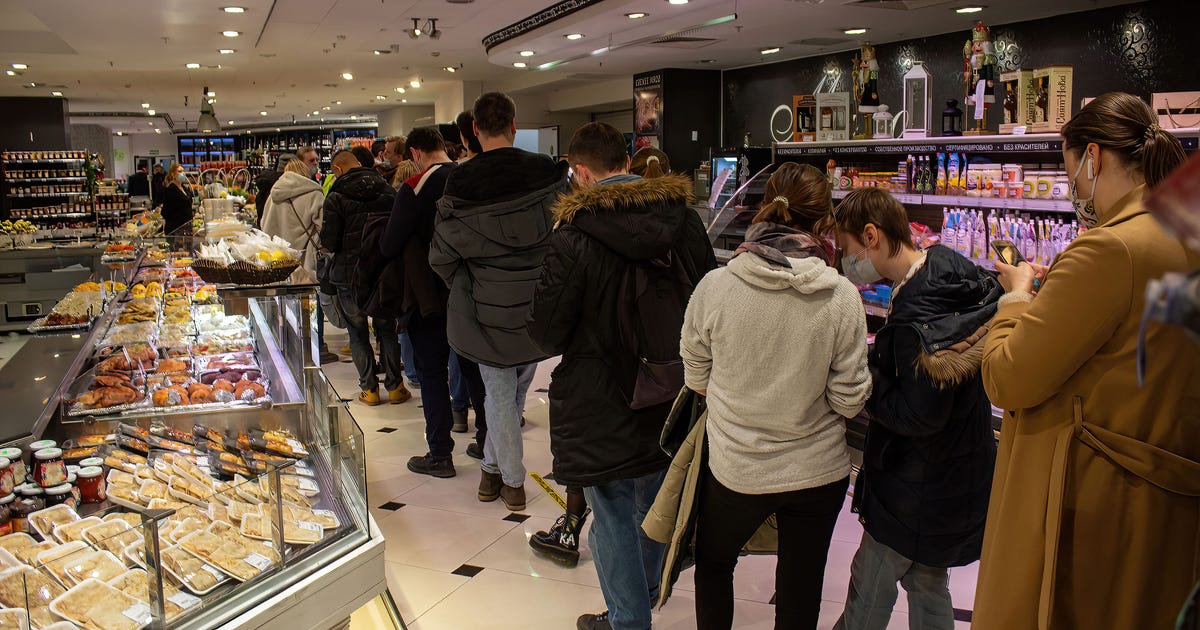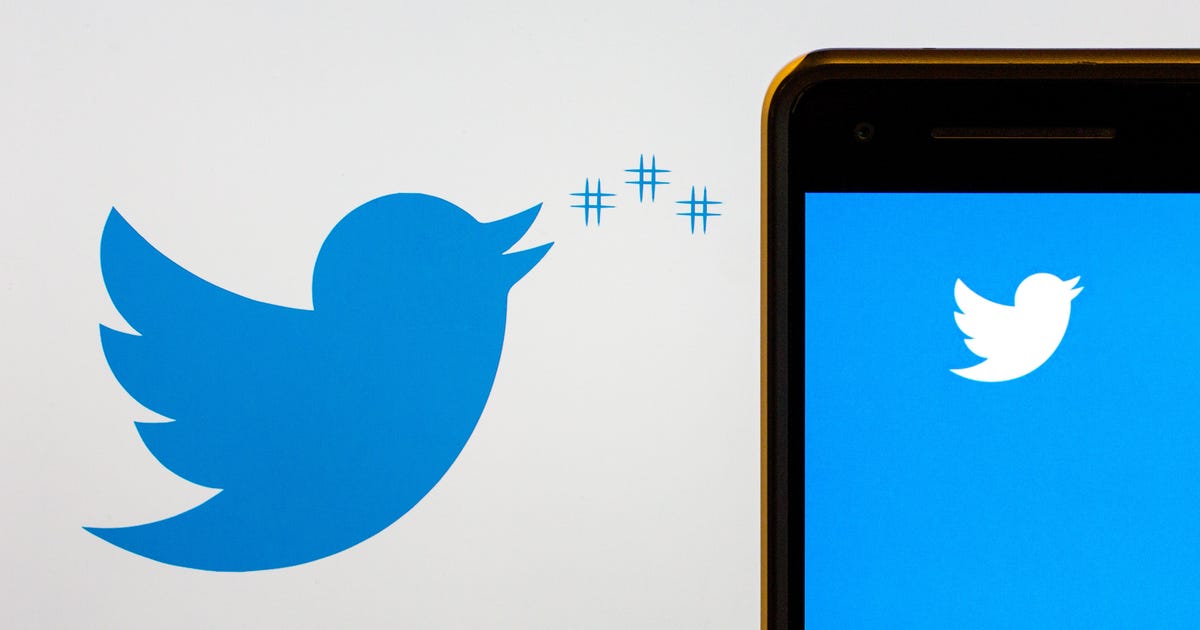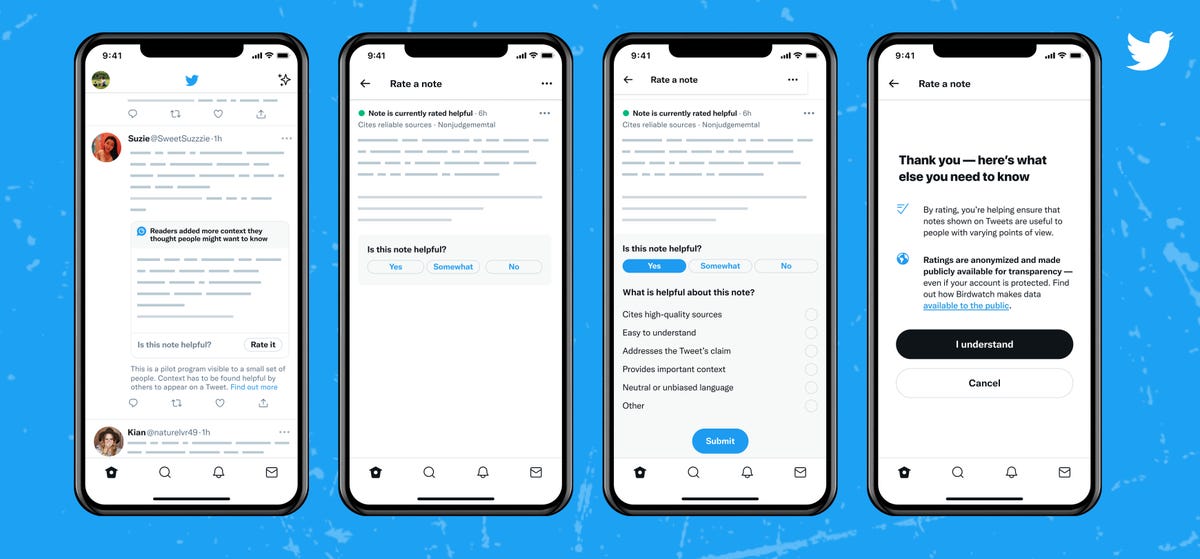
Ukraine Invasion: What to Know Today About Inflation, Stocks, Gas Prices and More
Russia continued its assault on Ukraine on Monday, with heavy shelling in Kharkiv, the country's second-largest city, killing dozens of people and sending hundreds more to the hospital, according to Ukrainian officials.
Also on Monday, Russia and Ukraine sent delegates to neighboring Belarus for their first talks since the invasion began last week.
Russia's attacks have shut down shipping in Ukraine, a country with a massive agricultural industry, particularly corn and wheat. And economic sanctions against Russia have rattled stock markets, gas prices and more around the world.
Here's how the Ukraine crisis is affecting the US and global economies. For more, get the latest updates on the crisis, learn how to help those impacted by the conflict and find out where to get reliable updates online.
Gas and oil prices
Russia's invasion of Ukraine has caused global energy prices to spike, with crude oil rising Thursday above $105 a barrel for the first time since 2014. The price cooled down briefly but, by Monday morning, was back up to $105.07 a barrel in early trading.
At that time, the national average for a gallon of gas had reached $3.61, according to AAA, compared to $3.35 a gallon just a month ago and $2.71 one year ago. Many analysts believe the average could easily tick past $4 a gallon in March.
Russia is one of the world's largest producers of crude oil and natural gas, providing roughly 40% of the European Union's gas. Sanctions from the West could affect access to that supply, especially with Germany putting a halt to the Nord Stream 2 pipeline that was intended to bring natural gas from Russia to the EU via the Baltic Sea.

Analysts predict that the price of gas in the US could soar because of Russia's invasion of Ukraine.
Getty ImagesThe White House said President Joe Biden will work to offset gas prices by releasing oil from the Strategic Petroleum Reserve, a deep underground storage complex along the Gulf Coast holding an estimated 600 million gallons of crude.
However, some experts believe that won't have much effect on prices.
"We're already at the lowest level of reserves in the Strategic Petroleum Reserve since 2002, so we're already bumping up against constraints there," Isaac Boltansky, director of policy research for BTIG, told Yahoo Finance. "And, frankly, it hasn't had that much of an impact."
Continued inflation
"We could see a new burst of inflation," the American Enterprise Institute's Christopher Miller told The New York Times about the possibility of a sustained war in Ukraine.
Russia is the largest exporter of platinum and palladium, a metal used in mobile phones, automotive exhaust systems and fuel cells, and on Thursday prices for palladium hit a six-month high. Rising prices for essential metals could lead to increases for manufacturers and, ultimately, consumers.
In January, the Consumer Price Index, which measures consumer costs for goods and services, surged 7.5% over the same time last year, representing a 40-year high. If the invasion continues to disrupt supply chains and cause energy prices to spike, inflation could rise even further from already "very high levels," Goldman Sachs analysts said in a report Sunday, CNN reported.
"The inflation picture has worsened this winter as we expected, and how much it will improve later this year is now in question," economists for the Wall Street institution wrote.
Stock market volatility
As word of the Russian invasion broke Thursday morning, global stock markets took a hit: The Dow Jones Industrial Average dropped 830 points, while the Nasdaq slipped about 1.5% and the S&P 500 tumbled 2.5% at the start of trading.
After rallying on Friday, stocks prices tumbled again on Monday, the last day of February: The Dow fell about 489 points, or 1.43%, by 3 p.m. ET, while the S&P 500 dropped 54 points, or 1.23%, and Nasdaq dipped 0.76%, or about 106 points.
In Europe, on Friday, the German DAX, French CAC 40 and British FTSE also all marked strong rebounds from Thursday lows. But by Monday, the DAX had declined 106.21 points, or 0.73%.
Hong Kong's Hang Seng Index shed 0.24% Monday, while China's Shanghai Composite Index ticked up 11 points, or 0.32%.
Russia's main stock market, the Moex Index, suspended trading Thursday morning, according to The Wall Street Journal. On Friday, it bounced back, rising 20% to 2,470 points.
Trading on the Moex was suspended again on Monday, the same day the Nasdaq and the New York Stock Exchange temporarily halted trading of select Russian companies.
More cyberattacks
The US departments of Treasury and Homeland Security have both sounded the alarm over possible cyberattacks on US banks, hospitals, government offices and power grids in retaliation for sanctions against Moscow.
On Thursday morning local time, websites for the Ukrainian cabinet and foreign affairs and education ministries were all experiencing disruptions.
Herbert Lin, senior research scholar at Stanford's Center for International Security and Cooperation, told The Atlantic's Rachel Gutman that the Russians have elevated cyberattacks to an "art form."
Though US banks have been heightening their defenses, Lin added, utilities in larger cities might be more at risk because they lack the extra funding for cybersecurity.
Lin discouraged a panicked response by everyday Americans but said having extra cash and a go bag might not be a bad idea. He underscored that those items should always be in place regardless.
Rising food prices
Food prices have already risen in the US and abroad, and analysts say the Russian invasion of Ukraine is only pushing them higher.
Ukraine is the world's largest exporter of sunflower seed oil, an industry that has come to a virtual standstill amid the ongoing attacks. That absence will undoubtedly drive up the price of soybean oil, palm oil and other alternatives, even as the world faces a shortage of vegetable oils.
Ukraine is also one of the top five corn exporters in the world, trading some 35.9 million metric tons in 2019 alone. An extended open conflict would likely see prices go up in Europe for corn and related goods, including cooking oil, corn syrup and livestock feed.
Soybean prices have also surged in the US in recent months, following an unusually poor crop in South America. If US farmers have to make up the difference in both corn and soybeans, which compete for land, prices for both crops will likely rise in the United States, as will the cost of packaged goods made with them.

Prices of wheat and corn could rise, with a ripple effect on packaged goods made with grain.
Aja Koska/Getty ImagesRussia is the world's largest exporter of wheat, a crop that Ukraine exports as well. Together the two countries account for nearly a third of the global wheat trade.
The US doesn't rely on Russian wheat, but Robb MacKie, president of the American Bakers Association, told The Washington Post the grain markets "are all tied to each other."
If the conflict continues for more than a few weeks, American consumers will see rising prices for anything that has grain in it: flour, pasta, pizza, cereal, animal feed -- even beer.
Source








